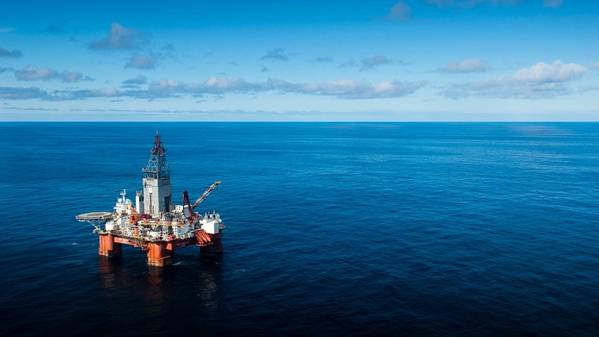
Norwegian energy giant Equinor has received approval to drill a wildcat well in the production license 960, in the Barents Sea, off Norway.
Equinor will use Seadrill's 2008-built West Hercules semi-submersible drilling rig to drill the offshore well 7018/5-1 at the Spissa prospect.
Equinor operates the production license with a 40 percent stake. Its partners in the offshore license are Petoro with 20 percent, Lundin Energy Norway with 20 percent, and Wintershall Dea Norge with 20 percent.
The area in this license consists of parts of blocks 7018/4 and 7018/5. The well will be drilled about 100 kilometers southwest of the Snøhvit field.
Production license 960 was awarded in June 2018, and the well will be the first well to be drilled in the license, according to the Norwegian Petroleum Directorate, which announced its consent for the operations on Friday.
The West Hercules semi-submersible drilling rig, currently on a day rate of $290,000, is now operating for Equinor in the Norwegian Sea, drilling the wildcat well 6407/1-8 S in the Apollonia prospect in production license 263 D. Following the completion of this project, it will mobilize to the Barents Sea.
Prior to the rig's move to the Norwegian Sea, the West Hercules was used by Equinor in the North Sea, where it, in late September, found oil and gas at the Swisher prospect. The estimated discovery size is around 13-38 million barrels of oil equivalent.
The expected spud date of the Barent Sea well has not been specified. A presentation by Lundin Energy shows the Spissa is expected to be drilled in the fourth quarter of 2020, with no info on the exact date. The water depth at the location is 304 meters.
In other recent Barents Sea offshore drilling news, Lundin Energy, Equinor's partner in Spissa, last weekend experienced what has been described as "a serious" incident on the West Bollsta drilling rig at the Polmak prospect.
Just days after spudding the Polmak well in the Barents Sea, which was the recently built rig's first well, operations were halted after a 26-ton pipe accidentally dropped on the drill floor during a riser lifting operation.
Luckily, no injuries have been reported, however, Lundin Energy told Offshore Engineer that drilling at Polmak would not resume until the cause of the incident is identified.